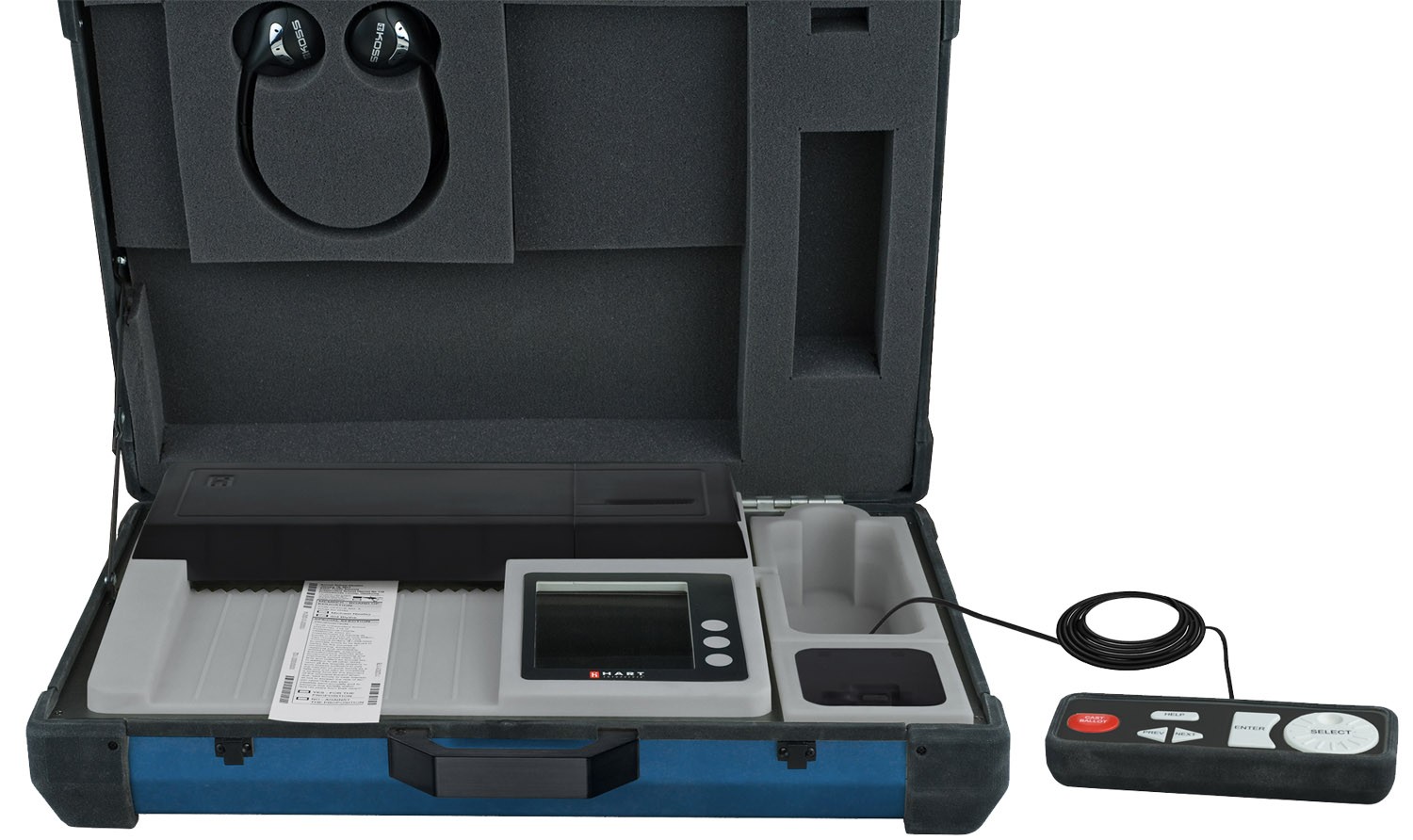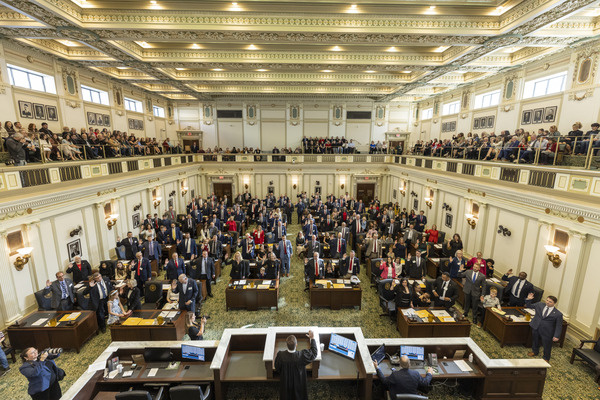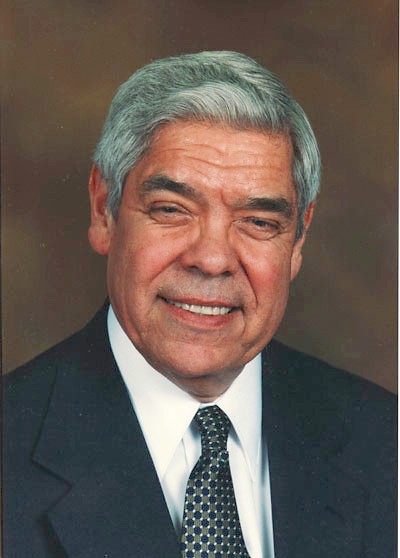Five State Questions on Ballot
One initiative for a statutory change, State Question 788, appeared before voters in the June 26 primary election. The medical marijuana initiative was approved with 57 percent of the vote. There are some gaps in the numbering of the State Questions, since some sponsors of proposed initiatives either withdrew their petitions or failed to gather enough signatures to secure a place on the ballot. At the time that State Question 788 was up for a vote, two petition drives organized by Green the Vote were in progress for other marijuana initiatives. Their Medical Marijuana initiative, which would have been State Question 796, fell short of the required signatures. Unlike the one approved by voters which only made changes to statutes, this initiative would have been a change to the state constitution which could not be changed by the Legislature. The Oklahoma Secretary of State’s office counted only 95,176 valid voter signatures on the initiative petition. The other marijuana initiative, which would have been State Question 797, would have permitted recreational use of marijuana. This second petition effort also fell short with just 102,814 valid signatures.
Of the five State Questions before voters on the November 6 general election ballot, only one was the result of an initiative petition. The other four questions were legislative referendums. We offer the following summaries of the State Questions that voters will find on the General Election ballot:
SQ 793 – Allow Optometrists, Opticians, and Eyewear Retailers in Big Box Stores
Oklahomans for Consumer Freedom, a group supported by Walmart, gathered and submitted signatures for Initiative 415 which will appear on the ballot as State Question 793. The Secretary of State confirmed 249,451 valid signatures, over twice the number required. The proposal would allow optometrists or opticians and eyewear retailers to operate within large retail stores like Costco, Target, or Walmart. Only Oklahoma, Delaware, and Rhode Island prohibit the sale of prescription optical goods in such stores. Current laws and regulations prohibit retail establishments from selling prescription glasses and contacts unless a majority of the establishment’s income comes from the sale of those products. This is the requirement that prevents the Big Box Stores from selling glasses in the state. Oklahoma would also join 34 other states in allowing an optometrist’s clinic to be located within and considered part of such a retail establishment. The measure would allow the Legislature to restrict optometrists from performing surgeries within those establishments, limit the number of locations at which an optometrist may practice, maintain optometric licensing requirements, require optometric offices to be in a separate room of a retail establishment, and impose health and safety standards. It is expected that Oklahoma consumers would benefit from lower prices due to the more competitive market. A challenge by the Oklahoma Association of Optometric Physicians was rejected by the Oklahoma Supreme Court.
SQ 794 – Expand Crime Victim Rights
This measure is a legislative referendum. SJR 46 was approved by the Legislature and will be on the ballot as State Question 794. The measure was authored by Sen. Anthony Sykes (R-Moore) and Rep. Scott Biggs (R-Chickasha). Known as Marsy’s Law for Oklahoma, the proposal would amend the state constitution to elevate the rights of crime victims to mirror the rights granted to the accused and convicted. It was named for the sister of its strongest proponent, Henry T. Nicholas, a businessman in the semiconductor field. His sister, Marsalee “Marsy” Nicholas, was shot and killed by her ex-boyfriend in 1983. Days later, the accused killer was out on bail and confronted Nicholas and his mother at a grocery store. The family did not know the man had been released. Nicholas made it his mission to require that crime victims receive notification of similar decisions and founded a group, Marsy’s Law for All, to advocate for such a law in all states. To date, six states – California, Illinois, Montana, North Dakota, South Dakota, and Ohio – have passed a version of Marsy’s Law. Opponents of the measure charge that the extensive notification requirements place an unreasonable financial burden on local court systems that lack the funds for a dedicated victims’ rights staff. The measure would require tracking and notifying thousands of crime victims about criminal cases. In June this year, voters in South Dakota placed curbs on that state’s 2016 law after counties incurred substantial costs in implementing the new rights for victims.
The coalition of support for SQ 794 includes a range of victims of crime and their families, law enforcement, advocates and general supporters of the cause for equal rights for crime victims. Statewide voices of support include endorsements from Oklahoma Association of Chiefs of Police, Oklahoma Coalition Against Domestic Violence and Sexual Assault, Oklahoma District Attorneys Council, Oklahoma Fraternal Order of Police, Oklahoma Sheriffs Association, Oklahoma Women’s Coalition, and YWCA of Oklahoma City.
SQ 798 – Elect Governor and Lt. Governor on a Single Ticket
This is another of the legislative referendums. Senate Joint Resolution 66 was authored by Sen. Adam Pugh (R-Edmond) and Rep. Mark Lepak (R-Claremore). State Question 798 would amend the state constitution to elect the governor and lieutenant governor together on one ticket starting in 2026. In 17 states, including Oklahoma, the lieutenant governor is elected separately from the governor. The neighboring states of Texas and Arkansas also have separate elections.
In 26 states, the lieutenant governor is selected on a ticket with the governor, meaning the lieutenant gubernatorial candidates serve as running mates to the gubernatorial candidates, with the winning gubernatorial candidate’s running mate becoming lieutenant governor. In 18 of those 26 states, candidates for governor pick their own running mates in a similar fashion to presidential candidates. In eight of those 26 states, there are separate primaries for governor and lieutenant governor, with the winning candidate in each primary appearing on the general election ticket together.
The lieutenant governor is the first in line to become the new governor of Oklahoma upon the death, resignation or removal of the governor. The lieutenant governor also serves as the president of the Oklahoma State Senate, presiding over joint sessions of the state Legislature, and may cast the tie-breaking votes in the Senate. The lieutenant governor presides over, appoints a designee, or is a member of 10 state boards and commissions.
The main argument for the proposal is that having the governor and lieutenant governor run on the same ticket would prevent them from being from different parties. At various times Oklahoma’s governor and lieutenant governor have belonged to different parties. The last time this happened was during the first term of Democrat Gov. Brad Henry from 2003 to 2007when Republican Mary Fallin was lieutenant governor. If the referendum is approved, it would be up to the Legislature pass legislation to determine how the governor and lieutenant governor would be elected on a single ticket. This is perhaps the greatest flaw in the proposal. Voters are faced with voting to place them on the same ticket, without knowing how that will be done.
SQ 800 – Create Oklahoma Vision Fund
This legislative referendum was sponsored by Sen. John Sparks (D-Norman) and State Rep. Charles McCall (R-Atoka) as SJR 35. This measure would set aside 5 percent of revenue from the state’s oil and gas production tax each year into a fund called the Oklahoma Vision Fund that would be invested by the Oklahoma State Treasurer, including investments in private companies and stocks and subject to what is known as the prudent investor rule. Between July 1 and September 30 each year, 4 percent of the average of the money in the fund over the previous five years – calculated annually on June 30 – would be transferred to the state’s general revenue fund. The amendment was also designed to prohibit any more than 5 percent of the money in the fund from being spent to pay bond debt or to pay back other financing mechanisms under the amendment. The state already has a Constitutional Reserve Fund, often called the “Rainy Day Fund,”created in 1985. That fund holds surplus funds taken in by the state and can be tapped by the Legislature for emergencies and at times of a budget crisis. Also, in 2016 the Legislature created the Revenue Stabilization Fund to help save even more money for economic downturns. Opponents say another fund is not necessary, and would divert taxes needed to fund current government services into a permanent fund from which only a small fraction of the money could be accessed each year.
SQ 801 – Use School Ad Valorem Taxes for Operations
This legislative referendum was enabled by the passage of SJR 70. It appears on the ballot as State Question 801. It was authored by Sen. Stephanie Bice (R-Oklahoma City) and Rep. Elise Hall (R-Oklahoma City). The measure would amend the state constitution to allow certain local voter-approved property taxes, known as ad valorem levies, to be used to fund school district operations rather than only for building construction and maintenance. Schools would be able submit property tax issues for voter approval to pay for utilities, teacher pay, textbooks, and new technology, just as they do now for construction or maintenance of school buildings. The 5 mill limit for school support would remain, so the combined total for buildings and operations could not exceed the 5 mill cap.
Critics say the amendment could allow the Legislature to reduce appropriations for education and enable teacher unions to push for tapping local property taxes for salary increases. Keeping funds reserved only for building and maintenance are beneficial to schools, and without the restriction, school districts may be pressured to put off necessary maintenance in order to be competitive on teacher pay.










Latest Commentary
Sunday 2nd of February 2025
Sunday 2nd of February 2025
Sunday 2nd of February 2025
Sunday 2nd of February 2025
Sunday 2nd of February 2025
Sunday 2nd of February 2025
Sunday 2nd of February 2025
Sunday 2nd of February 2025
Sunday 2nd of February 2025
Sunday 2nd of February 2025
Sunday 2nd of February 2025
Sunday 2nd of February 2025